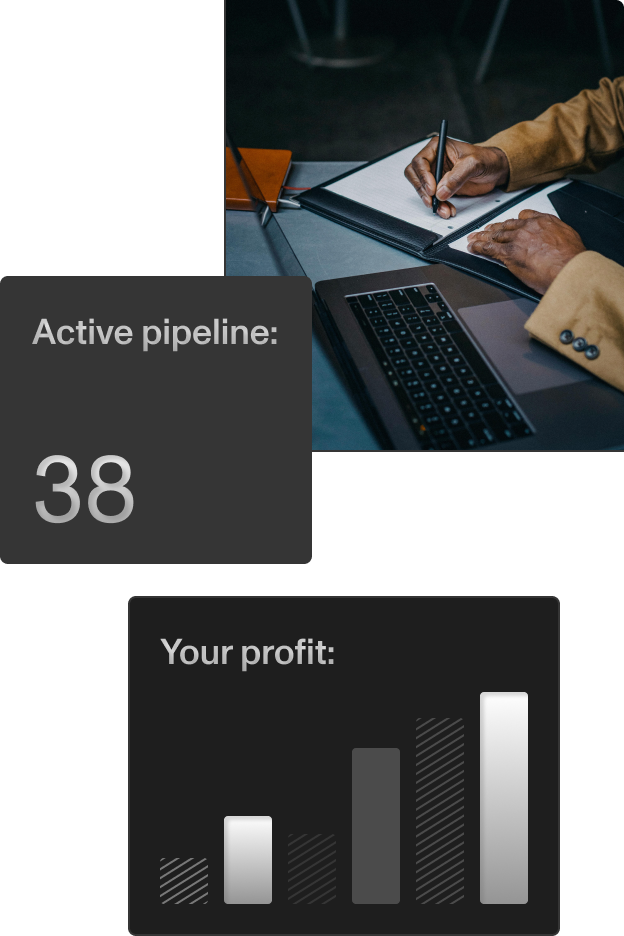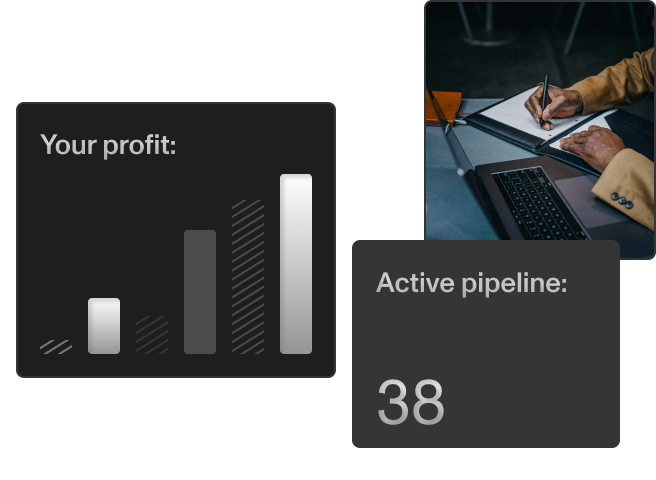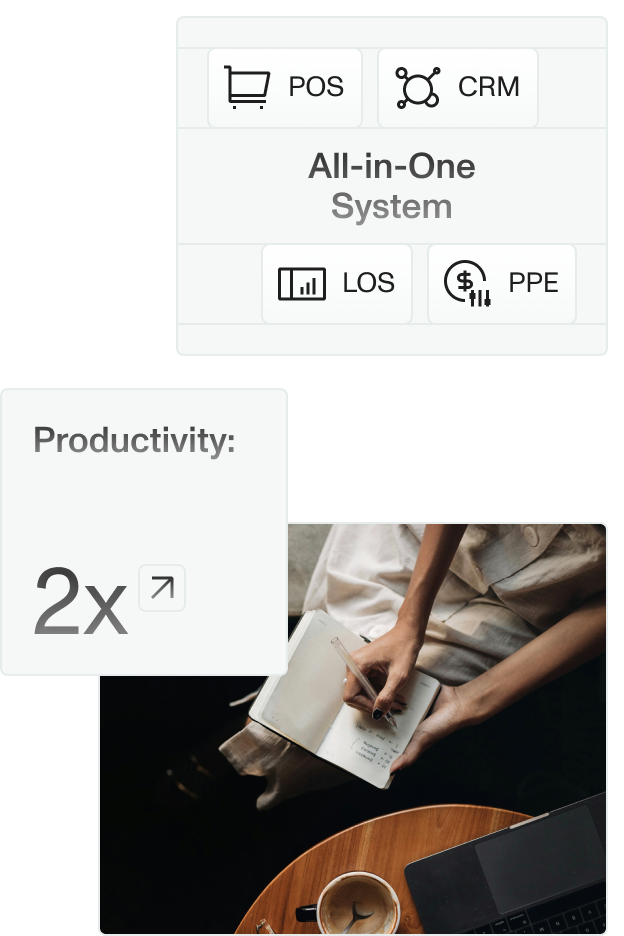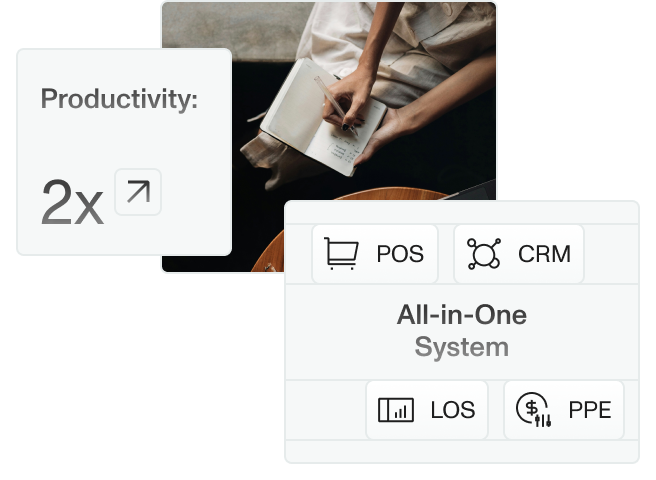Loan origination is a critical process in the mortgage industry, and for mortgage originators, mastering it is the key to success. In this comprehensive guide, we will delve into the basics of the loan origination process – including factors that can affect loan origination – and provide valuable strategies to streamline your workflow and excel as a mortgage originator. Whether you are a seasoned professional or just starting in the industry, this guide will equip you with the knowledge and tools to make the loan origination process efficient and effective.
What is Loan Origination?
Loan origination is the initial phase of the mortgage lending process by which a lender, such as a bank or credit union, evaluates a borrower’s creditworthiness, approves or denies a loan application, and disburses the funds if approved. The process starts with the borrower submitting an application, and ends with the lender making a decision on whether or not to approve the loan. As a mortgage originator, your role is to guide borrowers through this complex process, ensuring they understand their options, terms, and obligations.
The loan origination process can be broken down into several steps, including:
- Prequalification: This is the initial step where the borrower provides basic information to the lender, such as their income, employment status, and credit score. The lender uses this information to determine whether the borrower is likely to be approved for a loan and how much they will be eligible to borrow.
- Application: If the borrower is prequalified and decides to move forward, they will be asked to submit a formal loan application. This application will require more detailed information about the borrower’s financial situation, such as their debt-to-income ratio and their employment history. During this stage, the originator will verify the provided information, order credit reports, conduct property appraisals, and collect all required documents for underwriting.
- Underwriting: Once the application is submitted, it will be reviewed by an underwriter. The underwriter will evaluate the borrower’s creditworthiness, weigh the risks associated, and determine whether to approve or deny the loan. Facilitating effective communication between all parties is crucial during this stage to ensure the loan moves to closing smoothly.
- Closing: If the loan is approved, the borrower will be asked to sign a loan agreement and other legal documents. The lender will then disburse the funds to the borrower, completing the loan origination process.
Key Players in the Loan Origination Process
The loan origination process involves several key players, each with their own role to play:
- The borrower: the individual or entity seeking a loan. The borrower is responsible for providing accurate and complete information to the lender.
- The lender: the financial institution or other entity providing the loan. The lender is responsible for evaluating the borrower’s creditworthiness and making a decision on whether or not to approve the loan.
- The loan officer: the person who evaluates loan applications and makes loan recommendations to the lender. Loan officers are typically employed by the lender.
- The underwriter: the person who reviews applications and determines whether to approve or deny them. Underwriters are responsible for evaluating the borrower’s creditworthiness and ensuring that the loan meets the lender’s criteria.
- The processor: the person who prepares loan documentation and ensures all necessary information and paperwork is received and accurate. Processors are responsible for collecting and verifying all of the borrower’s financial information.
Effective loan origination requires close collaboration between these key players. By working together, they can ensure that the loan origination process is efficient, accurate, and meets the needs of both the borrower and the lender.
Factors Affecting Loan Origination
Credit Score and History
Credit score and history are important factors that lenders consider when evaluating loan applications. Borrowers with higher credit scores are generally viewed as less risky and more likely to be approved for loans than those with lower scores.
Debt-to-Income Ratio
The debt-to-income ratio is the borrower’s monthly debt payments compared to their monthly income. Lenders typically prefer borrowers with a lower debt-to-income ratio, as it indicates that the borrower is less likely to default on the loan.
Loan-to-Value Ratio
The loan-to-value ratio is the loan amount compared to the value of the asset being used as collateral for the loan. Lenders prefer a lower loan-to-value ratio, as it reduces the lender’s risk of losing money if the borrower defaults on the loan.
Employment and Income Verification
Lenders typically require borrowers to provide proof of employment and income as part of the loan origination process. Borrowers with a stable employment history and consistent income are viewed as less risky and more likely to be approved for loans.
Best Practices for Successful Loan Origination
In the fast-paced and competitive mortgage industry, adhering to best practices can significantly enhance your performance as a mortgage originator. By embracing the tips below, you can build lasting relationships with clients and establish yourself as a knowledgeable and trustworthy professional.
Provide Excellent Communication
Effective communication is the cornerstone of successful loan origination. As a mortgage originator, you must maintain clear and open lines of communication with borrowers, real estate agents, and other parties involved in the transaction. Promptly respond to emails, calls, and messages, and be proactive in updating all stakeholders about the loan’s progress. By keeping everyone informed, you foster trust and confidence in your abilities as a reliable professional.
Stay Informed
The mortgage industry is constantly evolving, with new regulations, lending guidelines, and market trends emerging regularly. To excel as a mortgage originator, commit to continuous learning and staying informed about the latest developments in the industry. Engage in professional development opportunities, attend seminars, webinars, and industry conferences to expand your knowledge base and refine your skills.
Organize Workflows
The loan origination process involves managing numerous documents, timelines, and tasks simultaneously. Organizing your workflow is crucial to ensure nothing falls through the cracks. Utilize technology to automate routine tasks, maintain an efficient CRM system to track client interactions, and use project management tools to monitor the loan’s progress. By implementing organized systems, you can provide a smoother experience for borrowers and other parties involved.
Embrace Empathy and Understanding
For many borrowers, obtaining a mortgage can be an overwhelming experience. As a mortgage originator, display empathy and understanding towards their concerns and questions. Take the time to explain complex concepts in simple terms, making sure borrowers feel comfortable and informed throughout the process. A compassionate approach can help ease their anxieties and build a positive relationship that extends beyond the loan transaction.
Proactively Problem Solve
Challenges may arise during the loan origination process. Be proactive in addressing any issues that may arise, and work closely with borrowers to find viable solutions. Whether it’s resolving credit discrepancies or navigating complex financial situations, your ability to handle challenges promptly and effectively will bolster your reputation as a trusted mortgage originator.
Mastering the loan origination process is essential for mortgage originators seeking success in the competitive mortgage industry. By understanding the fundamentals and implementing best practices, you can enhance your skills, streamline your workflow, and build a reputation as a trusted mortgage originator. Remember, success lies not only in securing loans but in delivering exceptional customer experiences that lead to lasting relationships and continued professional growth.
Speak with one of our experienced team members today, and let us show you how our suite of tools can transform your mortgage business. Ready to revolutionize your mortgage business? Schedule a demo now to unlock the full potential of Sonar’s all-in-one mortgage experience platform.








